If you’ve ever dreamed of heading out on safari, there are certain key aspects to look for in your safari Guide. Look no further than The Wild Source, and the standard they have set for the safari industry as a whole!
Selecting the best Guide, and guiding company, to facilitate your adventure is critical to your safari experience.
The Wild Source‘s business model builds on empowering locals and conserving wildlife to create an overall more sustainable landscape and experience.
Bill Given, Wildlife Biologist and Founder of The Wild Source, walks us through what to look for in selecting a safari company, how safari-goers can reduce their impact while on safari, what makes The Wild Source different from mainstream safari outfitters, and how to combat unethical behavior in the safari industry.
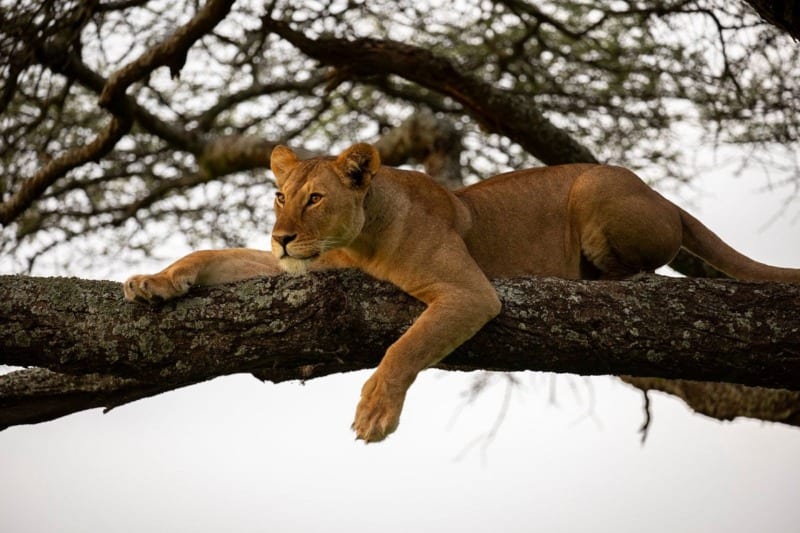
All manner of stunning sights await safari-goers and The Wild Source can provide a top-notch experience. Photo by Nathan Rolls
What to Look for in Selecting a Guide or Safari Company
While you might think looking for top safari reviews online is the answer, it’s actually what people say about the Guides offered through that company that matters most.
Given states that your Guide is the most important part of having an exceptional safari.
Despite your Guide being the most critical factor of the experience, “the majority of safari-goers have no idea who their Guides will be.” If you go through a planning company to organize your safari, they likely won’t know who your guide will be, as that task usually falls to the person on location arranging for guides.
According to Given, there are certain questions necessary to determine the quality of a Guide you’ll receive. Take note of these questions and ask them of the guiding companies you are researching and considering for safari.
- Who do the Guides work for – are the Guides employed by or partners of the company planning the safari, or are they provided by the safari camps or a ground operation that the planning company uses?
- What kind of retention of guides does the operator have?
- Are the Guides well-compensated by the company, or do they rely on guest tips for income?
- What kind of training and growth is provided?
- What reviews does the safari company have, and are Guides specifically mentioned in reviews?
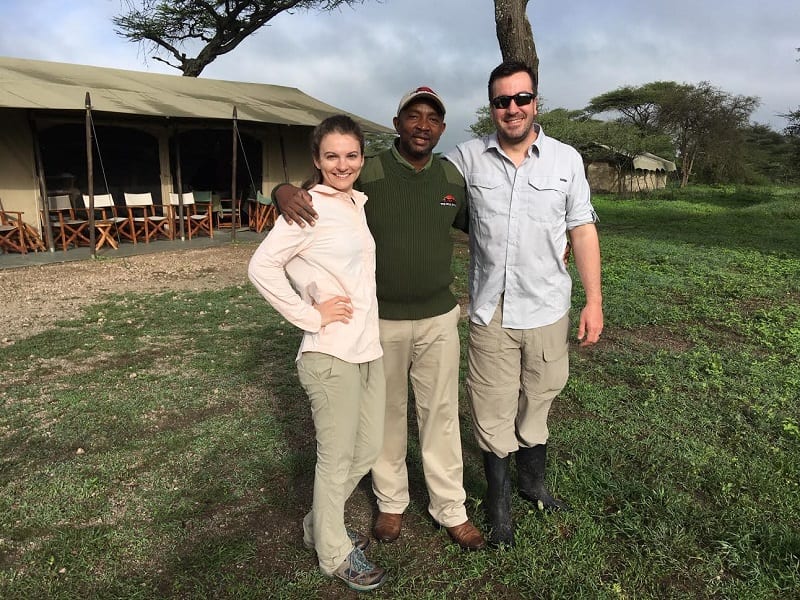
Our incredible Guide and fellow photographer, Josh Thadeo, who we connected with through The Wild Source.
Should experience be a factor in determining Guides?
It is entirely possible to get a Guide that has many years under their belt, yet provides a poor experience for guests. Alternatively, Given says he has “seen a number of very young guides that are already budding superstars, full of energy, fresh book-knowledge, and depending on their background and training, have serious skills too.”
“The pattern I want to see is the Guide being named, evidence of a personal connection and accounts crediting the guide with abilities that created a superb safari.
“At The Wild Source, we take the rare step in Tanzania of ‘naming’ the guide and providing a biography so that travelers know exactly who is going to be providing the key elements of their safari experience. This is not a common practice but worth asking who the guide will be and seeing what kind of reply comes.”
Some of the best safari teams will have a mix of exceptional mentors with lots of experience as well as younger, enthusiastic guides that might not have as many guiding years.
How Does The Wild Source Differ from other Guiding Companies?
As with nearly all of our wildlife-viewing trips, we go with the recommendations of researchers and biologists on the most ethical and beneficial way to spot a certain animal.
In the case of our safari, The Wild Source immediately stood out, being owned and guided by biologists and clearly exhibiting ethical guiding practices.
In Given’s words:
“It all starts with The Wild Source belief that lasting conservation can only be created if local people receive sufficient economic benefits. In pursuit of the mission, we have a focus on identifying exceptional guides, enticing them to join our team, and retaining them as partners by investing in them with compensation that is within the top level for the industry.
“We have also gone beyond that by being leaders in the Safari Industry in creating ownership opportunities for some of our guide partners. With this top echelon of guides, they are people who understand and appreciate the importance of conserving the wildlife and wild areas in their Countries.
“Their families benefit from the value of precious wildlife and they are passionate about wildlife and conservation. The guides are experts at sharing this magic with visitors, and are often leaders in their communities too! Thus, the guides are the ultimate Conservation Ambassadors leading the battle to sustain the wildlands while delivering an exceptional experience to their safari guests.“
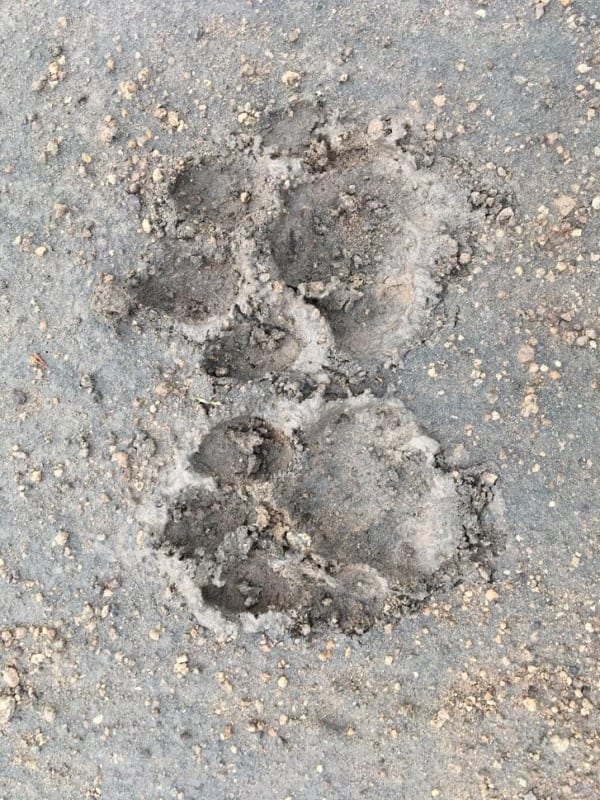
Josh intimately knows the land, and the signs that animals leave behind. One morning, he showed us these lion prints and how to glean information from a simple paw imprint! Photo by Christa Rolls
Importantly, The Wild Source has founded the Disruptive Empowerment initiative, creating opportunities for guide partners to become safari camp owners. This model provides myraid benefits to the local economy as well as the opportunity to provide hope for other community members to attain these same goals and a larger sense of community within the wildlife and landscape conservation realm.
Giving locals the opportunity to ascend to ownership opportunities “allows members of the community the satisfaction of working for one of their peers and have their culture emphasized, instead of working under more traditional and Colonial style approaches,” emphasizes Given.
READ NEXT | Our Cheetah Hunt Experience
What Does a Mainstream Experience Look Like?
While on safari, we witnessed the pressure other Guides were under to race up to wildlife for a quick photo and drive off to see another animal. It felt hectic, not to mention stressful for the wildlife and everyone in the vehicle.
“Most mainstream safari companies are typical businesses, where the bottom line of profits is the primary driver. The biggest difference between our approach is that we think the guide is irreplaceable and worth a premium cost, while many companies are focused on price competition and thus keep their guides’ compensation very low, in many cases largely depending on guest tips as the bulk of their pay.
“In that model, the guide often has pressure to compromise their decisions to produce short term satisfaction with their guests, for example racing in for a close up of a cheetah and then rushing to find the next species, whereas our guides want to share special behaviors and take time for their guests to learn. We preach patience to give time to learn more in-depth about the lives of the animals you observe.”
Patience goes a long way when it comes to wildlife, because, well, they’re wild and unpredictable! Being with a Guide who can facilitate a relaxing yet completely epic experience is so special.
Our Wild Source Guide, Josh, grew up in a village not far from where we spent the majority of our time on safari. His love for, and deep knowledge of, this land was palpable. He is truly an ambassador for the land and the wildlife found there!
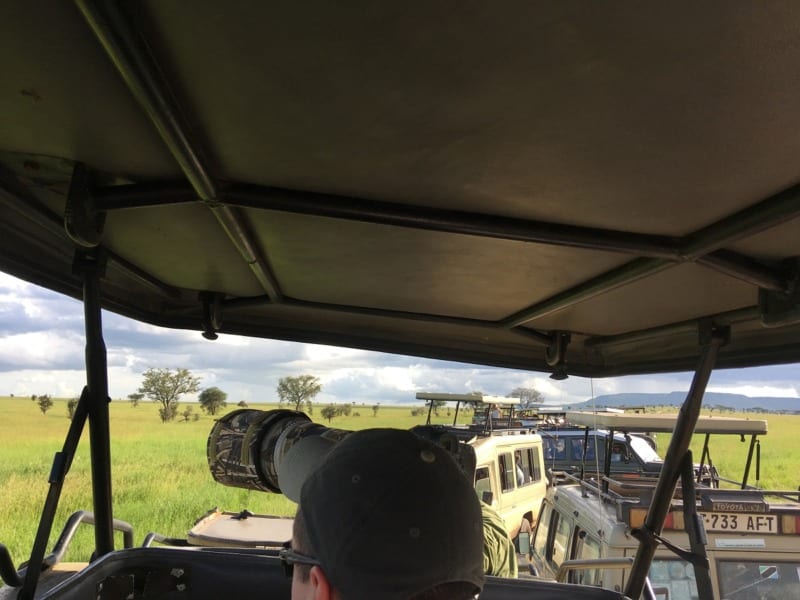
While heading to another part of the Central Serengeti, this main entry road was jam-packed with vehicles coming in for the day. There also happened to be a leopard nearby, so Guides were especially pressed to give their customers the opportunity to see them. Photo by Christa Rolls
How Do We Combat Unethical Behavior in the Safari Industry?
To continue being able to see animals thrive in the wild, treating them ethically and ensuring they (and the habitats on which they depend) are preserved is critical.
Any actions that change the behavior of wildlife, which might happen when you get too close to an animal, its den, or its food, is not an ethical way to see wildlife.
Given breaks down how to combat unethical behavior into four parts:
- Peer leadership of local guides
- Guiding standards and licensing
- A Guide’s need to receive proper compensation and be supported by their company
- Having educated and prepared safari guests
Peer leadership of local guides
First, knowledgeable and ethical Guides know that by giving wildlife their space, they’re reducing their impact on the animal and its ability to act naturally, including hunting. By doing so, Guides are able to provide a really exceptional experience for the guest.
Given explains that “if the majority of guides exhibit high standards and they address poor guiding actions when they witness them, then there becomes positive pressure on every guide to do things well.”
Guiding standards and licensing
Next, creating and implementing a set of standards and a system for licensing Guides better ensures that Guides will be taught to perform safaris ethically, by taking the needs of the wildlife into consideration first and foremost.
At present, high standards are implemented for Guides in Southern Africa, and more recently, with the help of the implementation of the Guides Association, in Kenya. However, other parts of Africa, including Tanzania, do not necessarily have strict guiding standards. Because of this, “travelers have a harder time researching to ensure that they will have top guiding,” says Given.
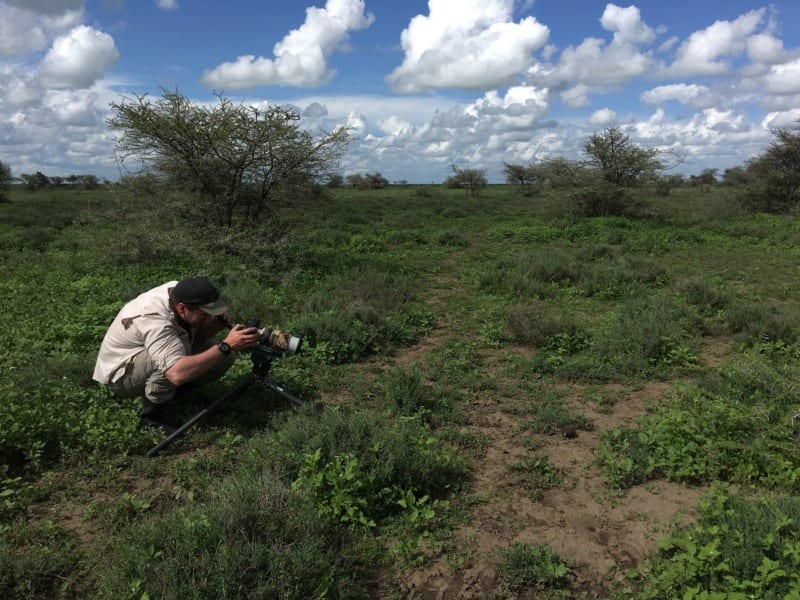
Take some time to stop and appreciate the smaller aspects of safari, like the impressive and incredible Dung Beetle. And go with a Guide that will be happy to experience this with you! Photo by Christa Rolls
A Guide’s need to receive proper compensation and be supported by their company
Third, if Guides are not given a proper wage from their company and rely on guest tips for the bulk of their income, they’re more likely to make unethical decisions in an effort to give customers experiences that would make them tip more. Further, when Given refers to company support, he is also referring to companies giving Guides “the resources and freedom to use their skills by planning quality itineraries that provide the Guide the chance to maximize the guest’s wildlife viewing.”
Did you know that some guide companies give their Guides mileage limits, forcing them to be constrained to a particular area and often leads to vehicle crowding? Not only does this put a lot of stress on the Guide to provide a good experience, but it also both stresses wildlife where crowding occurs and diminishes the experience for visitors.
Having educated and prepared safari guests
Finally, going on safari requires lots of coordination and communication, particularly ensuring that guests know what to expect on their trip. Part of having an ethical and enjoyable safari experience, and learning more about the animals and their behaviors, involves patience rather than racing from one spot to the next.
The Wild Source “provides detailed itinerary proposals so travelers have the opportunity to learn about where they will go and why that is a fit for them.” This expectation management prepares travelers for their experience and better allows them to understand what their trip will look like.
READ NEXT | African Safari Checklist – What to Know Before you Go
How can Safari-Goers Have the Best Experience?
Patience is Rewarded
Nature moves in its own time, in its own way, and “visitors who take the time in the bush and focus on the quality of sightings rather than rushing from one thing to another usually have the more interesting and exciting observations,” says Given.
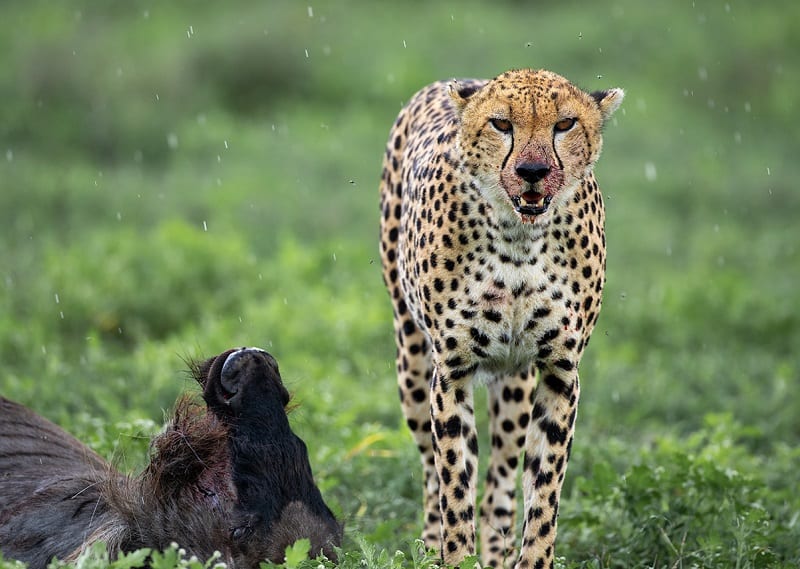
Patience, indeed. After spending a day casually keeping our distance from two cheetah brothers and simply enjoying watching them, we were rewarded with the most incredible cheetah hunt. Photo by Nathan Rolls
Trust the guide
Right before we experienced the epic cheetah hunt pictured above, I remember asking, “why are we moving the vehicle?” Well, not only was he moving out of the way he anticipated for the cheetahs to move, but he also knew the exact place to situate the vehicle, out of the cheetah’s way, for them to hunt and us to witness this spectacle. I’ll never ever doubt him and his abilities.
“It is very important to listen to any instructions and advice the guide provides. They know the etiquette and what is ethical, as well as what is important for safety. If you are not sure about something ask the Guide, communication is important and they can give you guidance and their thought process.”
Be Respectful
“This is a good recommendation for all of life but in most African cultures treating people with respect and being polite are very important,” reminds Given, even if other guests or guides are exhibiting bad behavior. This kind of situation is best left for the guide to handle.
“Likewise, the wildlife deserves respect. We are fortunate to visit these amazing wildlife areas and it is essential that wildlife be given the respect to live without interference from safari-goers. Respect also allows humans and wildlife to co-exist safely.”
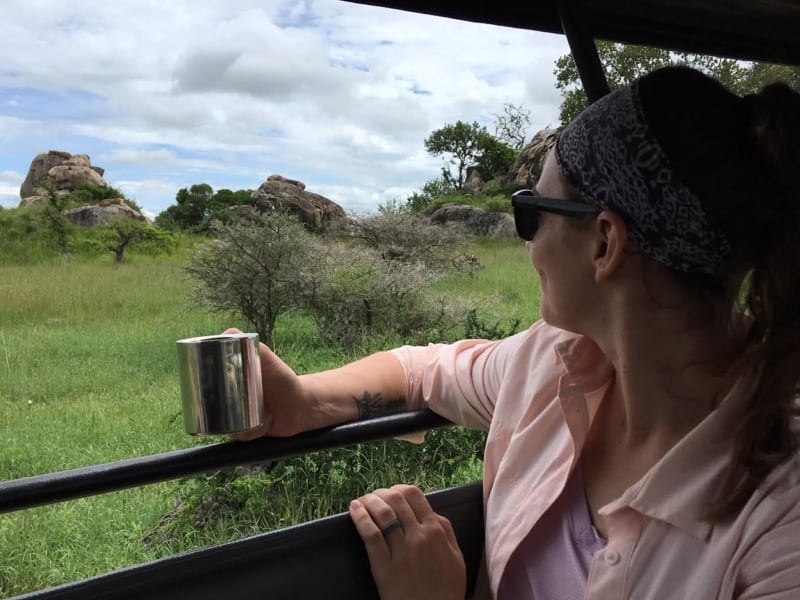
The incredible rocks in the Central Serengeti make wonderful sun-basking spots for lions and other African critters. Relaxing coffee breaks seeing lions from a distance is a wonderful way to spend the morning! Photo by Nathan Rolls
How Can Safari-Goers Reduce their Impact while on Safari?
The Wild Source has four particularly useful and actionable steps that safari-goers can take to reduce their impact during their trip. If you’re planning a safari trip, consider how to incorporate the following:
- Choose and support safari operations that benefit local people, ideally with local ownership.
- Stay at camps that have minimal environmental footprints with responsible measures such as use of solar power, elimination of single-use plastics, and empowerment of both local men and women.
- Encourage and appreciate guides that operate under ethical standards and do not pressure wildlife.
- Consider how to make positive contributions. There are lots of ways to have a good impact, from making connections that lead to supporting a local program with a donation to simply taking time to provide feedback on something a camp or safari operator can do better for the environment or posting a positive recommendation on a public forum to help other travelers find and support camps or safari operators that are conducting safaris in an excellent way.
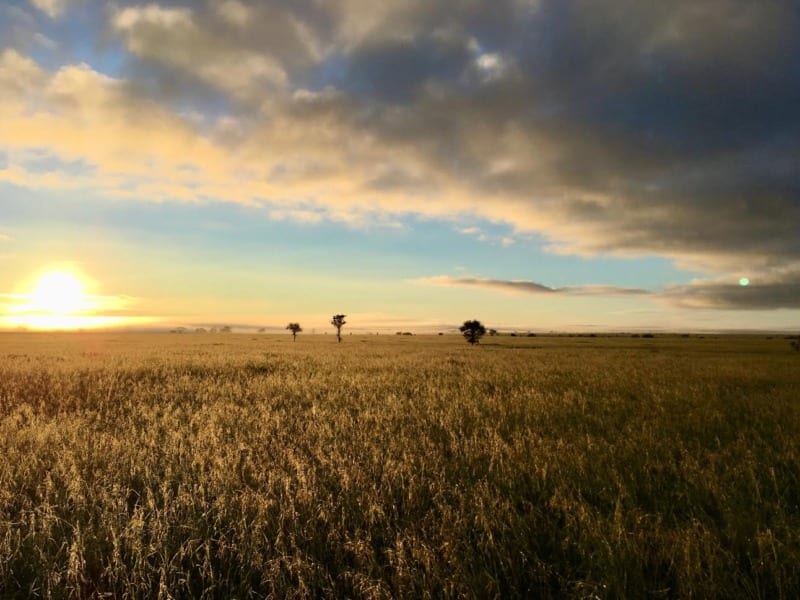
There are few sights as stunning as a Serengeti sunset. Photo by Christa Rolls
Our Wild Source Experience
Without a doubt, our experience with The Wild Source made our trip to Tanzania unforgettable.
Not only was the correspondence with the safari planning staff ahead of time seamless and easy, but we were also paired with a guide that would specifically work well with us and our photography and filming endeavors.
You’ll be spending hours every day for days or weeks on end with your Guide – ASK about them. You deserve to have a safari experience that is as wonderful as possible, and you’ll only get this with a thoughtful and ethically-minded Guide and guiding company.
Josh is a photographer, and we talked for hours and hours about photography, the animals we saw, the minute behavioral details every animal was exhibiting, how he became a guide and what his background is, how he knows the land so intimately, and even all about the constellations at night.
He allowed us exciting moments where our hearts slammed against our chest during that cheetah chase, as well as calm moments, taking lunch on the endless plains with no one else in sight, quietly watching wildlife found only in this part of the world.
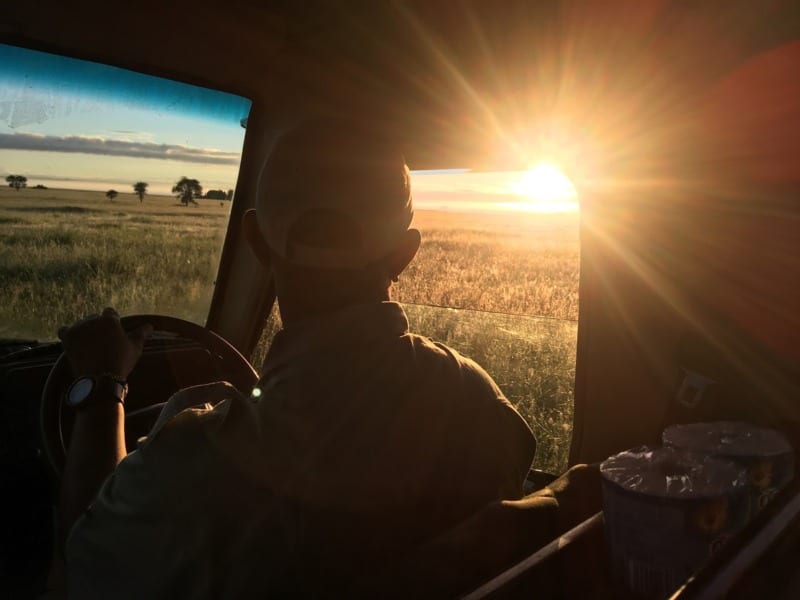
Some of our favorite moments on Safari were when we enjoyed the quiet stillness of the plains at sunset. Photo by Christa Rolls
In the evenings, we sang and danced around the dinner table and night fire, learning words in Swahili through song and the feel of a drumbeat to the music.
We were made to feel like family, ingraining the landscape and its stunning people and wildlife in our minds forever.
THIS is The Wild Source experience. This is the safari experience we all deserve.
Contact The Wild Source
For more information about taking a Wild Source trip, contact The Wild Source directly to inquire about itineraries and options.
If you’d like to ask us about our experience, feel free to drop a comment below or email us at [email protected].
Happy Travels,
Christa and Nathan
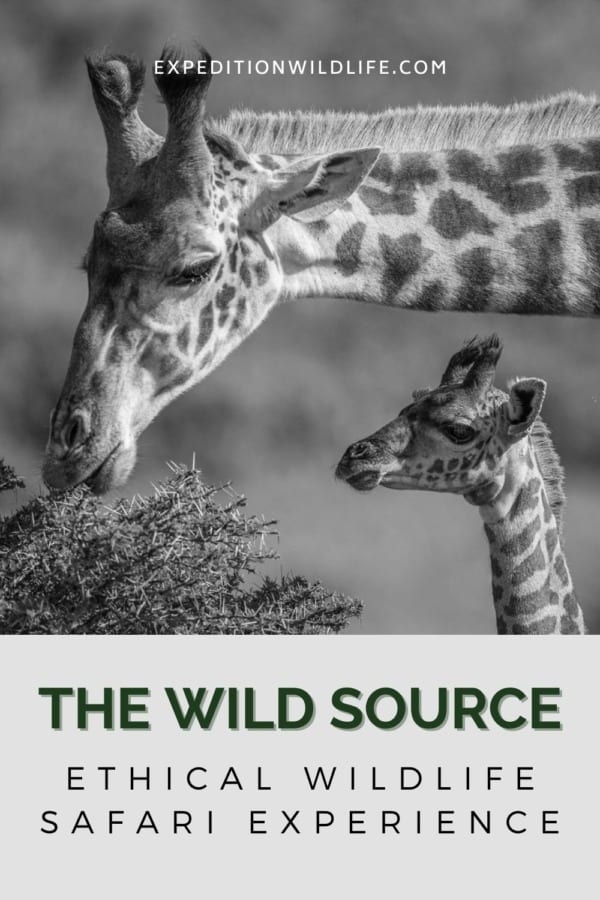

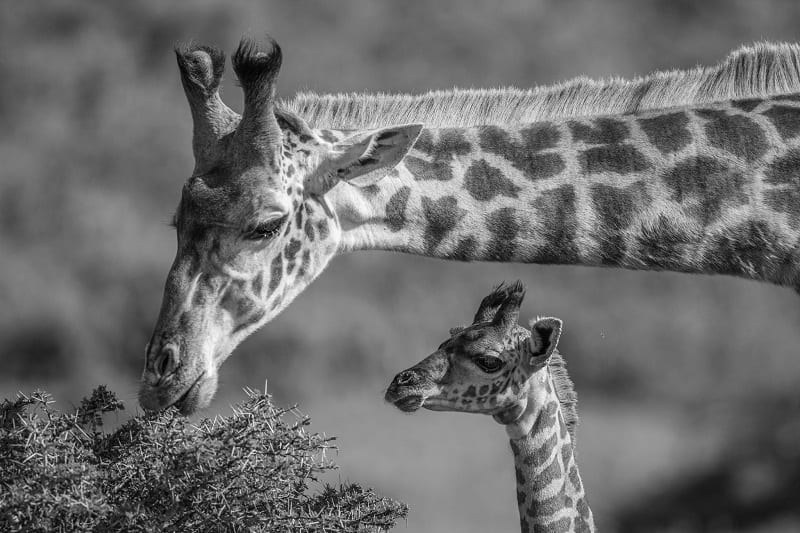
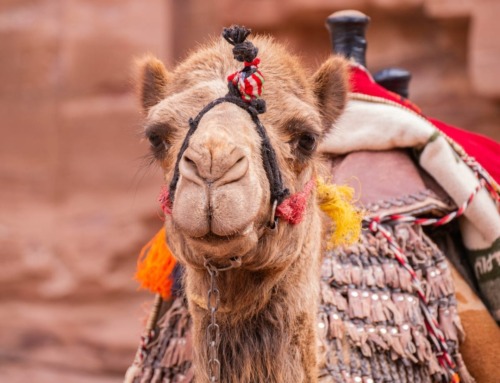
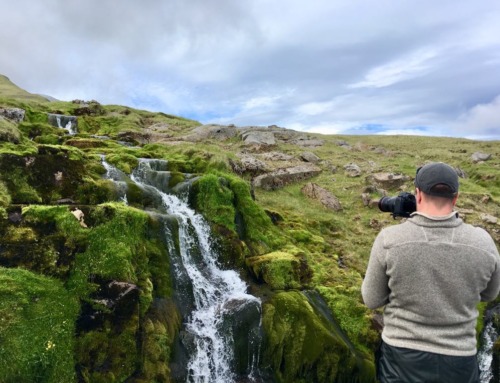
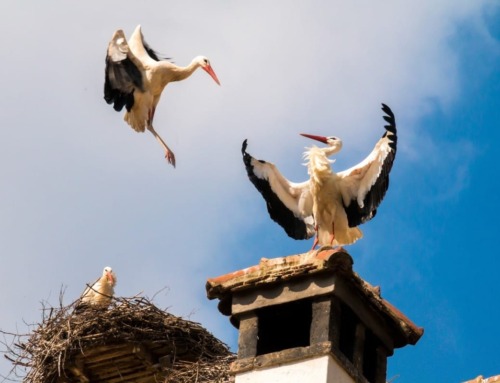
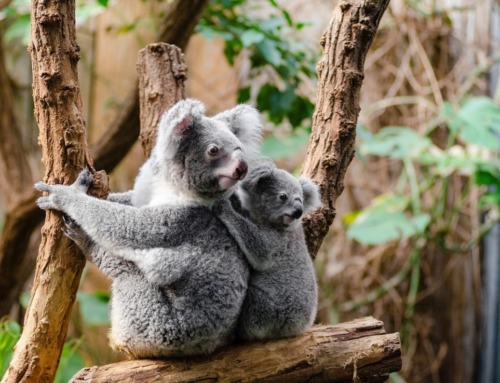
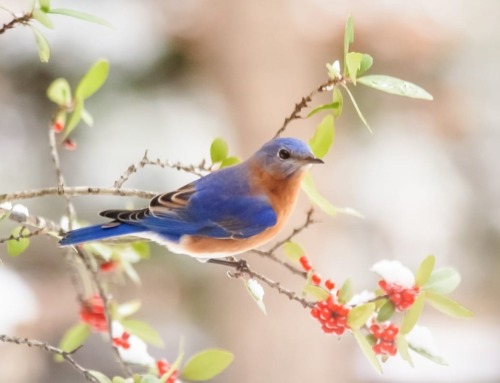
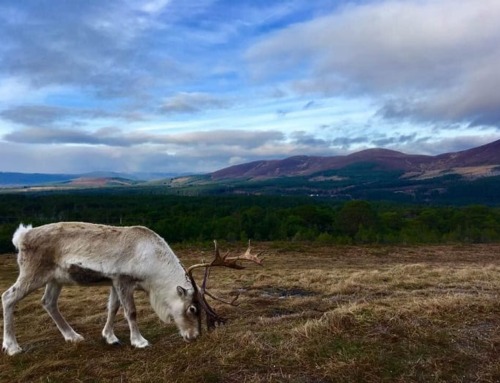
Leave A Comment